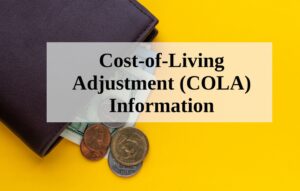
How It Works: Eligibility and Key Rules
Now that we understand the basic building blocks, let’s talk about who can get Medicare and when you need to sign up. The rules are straightforward, but the timing is very important.
Who Is Eligible for Medicare?
Generally, you are eligible for Medicare if you are a U.S. citizen or have been a legal resident for at least five consecutive years, and one of the following applies to you:
You are age 65 or older. This is the most common path to eligibility.
You are younger than 65 but have a qualifying disability. You typically qualify after receiving Social Security Disability Insurance (SSDI) benefits for 24 months.
You have End-Stage Renal Disease (ESRD) or Amyotrophic Lateral Sclerosis (ALS). These conditions have special rules that allow for earlier enrollment.
The Role of Work Credits for Part A
Whether you pay a monthly premium for Part A depends on your work history. While working, you paid Medicare taxes. These taxes earned you “credits.” You need 40 credits (which is about 10 years of work for most people) to get Part A for free.
If you don’t have enough credits, you may still be able to get premium-free Part A based on your spouse’s work record. If neither of you has the required credits, you can usually still buy into Part A, but you will have to pay a monthly premium.
When to Sign Up: Your Enrollment Periods
Timing your enrollment is perhaps the most critical part of the process. Missing your window can lead to lifelong penalties.
Initial Enrollment Period (IEP)
For most people, the main time to sign up is during their Initial Enrollment Period. This is a 7-month window that includes:
The 3 months before your 65th birthday month.
Your 65th birthday month.
The 3 months after your 65th birthday month.
For example, if your birthday is in July, your IEP runs from April 1st to October 31st. Signing up during the first three months helps ensure your coverage starts on the first day of your birthday month, preventing any gaps in your health insurance.
Special Enrollment Period (SEP)
What if you’re still working at 65 and have health coverage through your employer (or your spouse’s)? In many cases, you can delay enrolling in Part B without a penalty. When you eventually stop working or lose that coverage, you will be given a Special Enrollment Period of eight months to sign up for Part B.
General Enrollment Period (GEP)
If you miss your IEP and don’t qualify for an SEP, you can sign up during the General Enrollment Period, which runs from January 1st to March 31st each year. However, if you enroll during the GEP, your coverage won’t start until July 1st, and you will likely have to pay a late enrollment penalty for Part B.
Understanding your finances is a big part of planning for healthcare costs. You can find helpful resources for managing your budget from the Consumer Financial Protection Bureau (CFPB).










